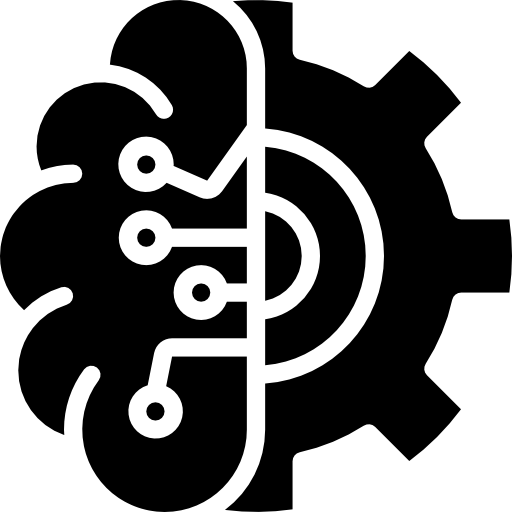The research theme on ethics and AI aims to address a number of the ethical challenges put forward in AI, and provide the first building blocks towards the development of AI systems that adhere to our values and requirements. We propose novel computational methods and tools, underpinned by multidisciplinary research, that can make humans and machines understand their respective dynamic goals while strictly abiding by the values that inspire our societies.
Contact: Nardine Osman

In the past few years, many initiatives arose attempting to address the issues of ethics and AI. Some were led by top tech industries, while others by top scientists in the relevant fields — from philosophy to AI. Amongst those is the IIIA-led Barcelona declaration for the proper development and usage of artificial intelligence in Europe. All those initiatives share a number of challenging ethical concerns, ranging from explainability, transparency, and accountability, to value alignment, human control and shared benefit.
At IIIA, we aim to address some of these ethical challenges. On the one hand, we wish to focus on the development of AI systems that adhere to our values and requirements. On the other hand, we want to focus on the impact of AI systems on the human interactions (amongst each other or with the AI system) to ensure we are promoting ethical interactions and collaborations.
Our work on ethics and AI is underpinned by strong multidisciplinary research. For example, what system behaviour is deemed ethical and legal is key here. As such, we say the social sciences and humanities (from philosophy and law to social and cognitive sciences) lie at the heart of any research on ethics and AI. We argue that these fields should not only provide insights for AI research, but should actively and collaboratively participate in directing and advancing AI research.
In what follows, we present the principles underpinning IIIA's work on ethics and AI.
➊
AI systems must be driven by people’s needs and values, and evolve with those evolving needs and values.
This ensures AI systems thrive for our shared benefit, while adhering to our values.
➋
The governance of AI must be democratised.
This gives people control over their AI systems, so they can have a say on how their technology should or should not behave. This not only demands novel democratic, interactive initiatives, but also a careful input from the fields of both ethics and law to help assess the dynamics between what people want, what is ethical and what is legal.
➌
A humanist perspective is necessary for ethical human-machine collaboration.
It is important to nourish a humanist perspective that situates AI within the larger human phenomenon we call 'intelligence' as it arises from the shared interrelations and interactions of humans, computational systems, and the environment.
A sample of our research interests is presented below.

Agreement Technologies
Giving humans a say in how their technologies function implies allowing them to collectively agree on such issues. Research areas like argumentation, negotiation, trust and reputation, computational social choice, and semantic alignment all provide means to support peers (humans and software agents) to collaboratively reach agreements. We argue that agreements should be value-driven. As such, introducing values to the research areas of agreement technologies is of utmost interest.

Learning & Reasoning
Learning when a system is not fulfilling its goals can help signal a need for change. Learning which norms better adhere to certain values or which norms suit a given community of peers best can help support the decision making process of how a system must change/evolve, as well as support what direction should this change take. We envision learning and reasoning mechanisms to support the humans' decision process.

Natural Language Processing
Having humans collectively agree on the needs and values that drive and govern their technologies implies: 1) having humans discuss and argue these needs and values, and 2) having the system engage in the humans' agreement process and understand the final decisions. As we cannot expect humans neither to be proficient in the formal languages used for specifying needs and values nor have discussions in a formal language, natural language processing becomes key for the human and machine to understand each other.

Norms & Normative Systems
Behaviour is what ensures needs are fulfilled and values are adhered to, and norms are what govern behaviour. Normative systems have traditionally been used in multiagent systems to mediate behaviour. We follow in those footsteps and propose using normative systems as means to mediating behaviour. We are especially interested in the relation between values and norms and ensuring (sometimes verifying) a normative systems adheres to predefined values.

Ethics
Defining values formally is a challenge on its own. Embedding values in AI systems and verifying the adherence of a system to a set of values is even a bigger challenge. All of this requires a careful close-knit collaboration with the field of ethics. Furthermore, while the need for human control has been argued as one of the principles of ethical AI, we cannot ignore the fact that humans may indeed reach "wrongful agreements", that is, unethical or illegal agreements. A careful analysis is thereby required to address issues like "wrongful agreements". Understanding the dynamics between what is required by humans, what is deemed ethical, and what is legal may be key for the development of "ethical" AI systems.

Legal Studies
Legal norms are used in AI and law to support reasoning about legal statements, and legal systems can be implemented as normative systems. As such, the collaboration with the field of legal studies is imperative. Furthermore, assessing the consequences and implications of giving the machine executive and judiciary powers (especially where the system automatically adapts and evolves) requires a careful close-knit collaboration with the field of legal studies. And as with the field of ethics, the legal perspective on dealing with "wrongful agreements" is also necessary. Understanding the dynamics between what is required by humans, what is deemed ethical, and what is legal may be key for the development of "ethical" AI systems.
- Council of the European Union Report: Presidency conclusions on the charter of fundamental rights in the context of artificial intelligence and digital change (Report)
- IIIA's workshop on "Value-Driven Adaptive Norms", presented @ the Future Tech Week 2019, on 26 September 2019. (YouTube, Slides )
- Barcelona declaration for the proper development and usage of artificial intelligence in Europe (Declaration, Videos)

















